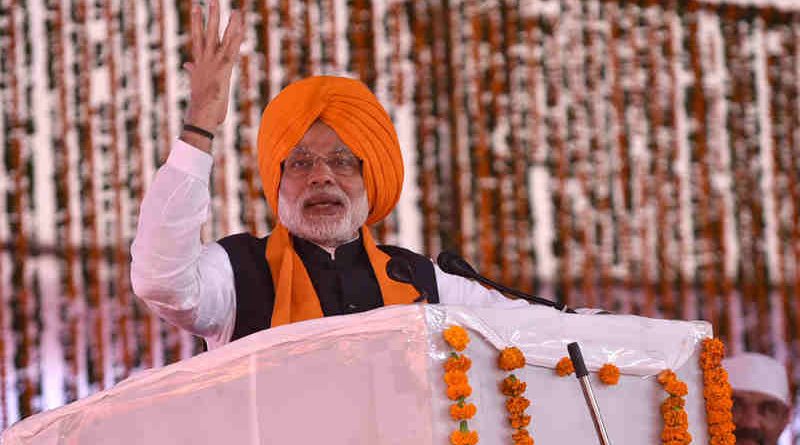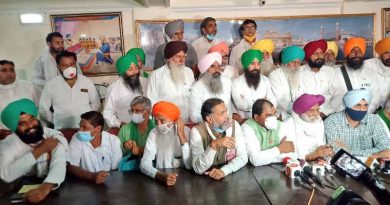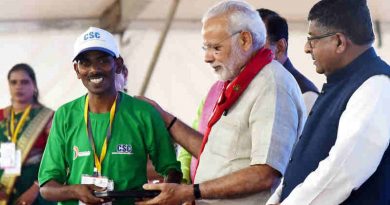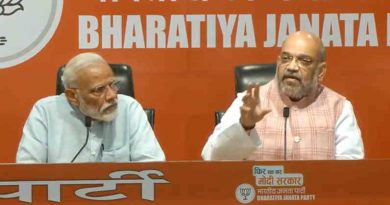Global Report Shows Decline of Democracy Under Modi Govt in India

Global Report Shows Decline of Democracy Under Modi Govt in India
The report reveals that political rights and civil liberties in India have deteriorated since Narendra Modi became Prime Minister in 2014.
A global research report “Freedom in the World 2021: Democracy under Siege” has downgraded India’s status from “Free” to “Partly Free” due to the authoritarian actions of Prime Minister (PM) Narendra Modi.
The report finds that in a multiyear pattern the Hindu nationalist Modi government and its allies have presided over rising violence and discriminatory policies affecting the Muslim population. And they pursued a crackdown on expressions of dissent by the media, academics, civil society groups, and protesters.
With India’s decline to ‘Partly Free’, less than 20 percent of the world’s population now lives in a Free country, the smallest proportion since 1995. India, the world’s most populous democracy, has dropped from ‘Free’ to ‘Partly Free’ status in Freedom in the World 2021 report.
Authoritarian actors grew bolder during 2020 as major democracies turned inward, contributing to the 15th consecutive year of decline in global freedom, according to the report, which is the annual country-by-country assessment of political rights and civil liberties released by Freedom House.
According to the report, the Modi government and its state-level allies continued to crack down on critics during the year, and their response to Covid-19 included a ham-fisted lockdown that resulted in the dangerous and unplanned displacement of millions of internal migrant workers.
The ruling Hindu nationalist movement also encouraged the scapegoating of Muslims, who were disproportionately blamed for the spread of the virus and faced attacks by vigilante mobs. Rather than serving as a champion of democratic practice and a counterweight to authoritarian influence from countries such as China, Modi and his Bharatiya Janata Party (BJP) are tragically driving India itself toward authoritarianism, the report said.
It has also listed key developments of 2020 in India. In February 2020, for example, more than 50 people, mostly Muslims, were killed amid communal and protest-related violence in Delhi that followed weeks of demonstrations against discriminatory changes to the country’s citizenship law.
Authorities filed criminal charges against journalists, students, and private citizens under colonial-era sedition laws as well as the 2000 Information Technology (IT) Act in response to speech perceived as critical of the government, notably including expressions of opposition to the new citizenship legislation and discussion of the official response to the Covid-19 pandemic.
India’s internal migrant population endured significant hardships as a result of the government’s pandemic-related lockdown, which was imposed in March and gradually eased beginning in May. Many migrant laborers were unable to access basic supplies and services in cities, forcing millions to travel hundreds of miles—often on foot—to their home villages. Harsh restrictions on movement were violently enforced by police and citizen vigilantes, with Muslims often scapegoated as potential spreaders of the virus.
In September, several BJP leaders who were credibly accused of orchestrating the demolition of a historic mosque in 1992 were acquitted by a special court. Modi the previous month had signaled his support for the construction of a Hindu temple on the contested site.
Although the report states that the elections and selection procedures are generally regarded as free and fair in India, it did not take into account the electronic voting machine (EVM) factor. It is largely believed that Modi’s party BJP wins most elections in India by tampering with the EVMs.
According to the report, the fall of India from the upper ranks of free nations could have a particularly damaging impact on global democratic standards. It adds that political rights and civil liberties in the country have deteriorated since Narendra Modi became Prime Minister in 2014.
Under the Modi regime, the report says, there is increased pressure on human rights organizations, rising intimidation of academics and journalists, and a spate of bigoted attacks, including lynchings, aimed at Muslims.
The decline only accelerated after Modi’s reelection in 2019. Last year, the government intensified its crackdown on protesters opposed to a discriminatory citizenship law and arrested dozens of journalists who aired criticism of the official pandemic response.
NEW REPORT: Freedom in the World 2021 marks the 15th consecutive year of global democratic decline — with less than a fifth of the world’s population living in Free countries. #FreedomInTheWorld https://t.co/RMFhagNlGE pic.twitter.com/mgUTNfwHdU
— Freedom House (@freedomhouse) March 3, 2021
Judicial independence has also come under strain; in one case, a judge was transferred immediately after reprimanding the police for taking no action during riots in New Delhi that left over 50 people, mostly Muslims, dead.
In December, according to the report, Uttar Pradesh (UP), India’s most populous state, approved a law that prohibits forced religious conversion through interfaith marriage, which critics fear will effectively restrict interfaith marriage in general; authorities have already arrested a number of Muslim men for allegedly forcing Hindu women to convert to Islam.
Under Modi, the report says, India appears to have abandoned its potential to serve as a global democratic leader, elevating narrow Hindu nationalist interests at the expense of its founding values of inclusion and equal rights for all.
In this report released on March 3, Freedom House has grouped India with countries such as Algeria, Belarus, Ethiopia, Hong Kong, and Venezuela where citizens have lost hope of living in a democratic environment.
Freedom House is an American organization devoted to the support and defense of democracy around the world.





